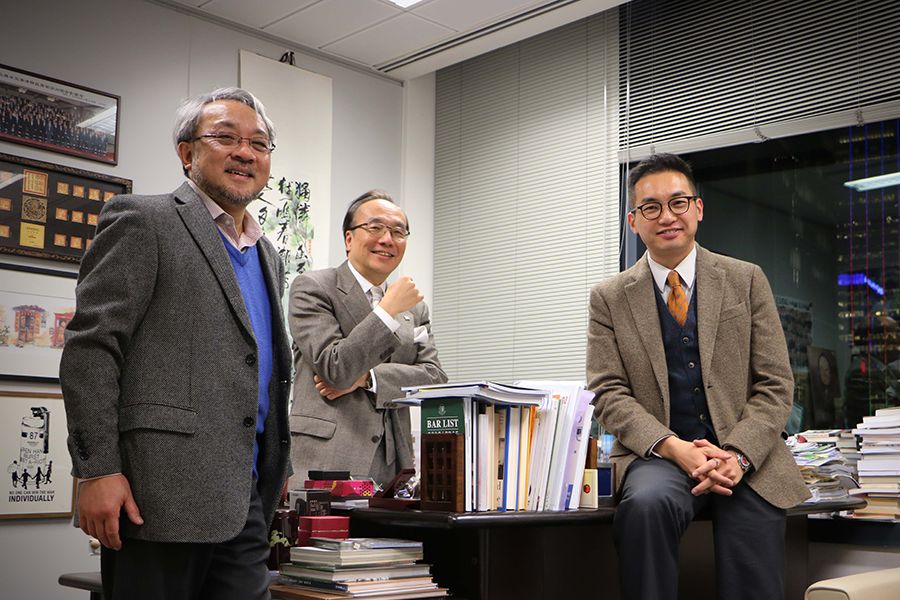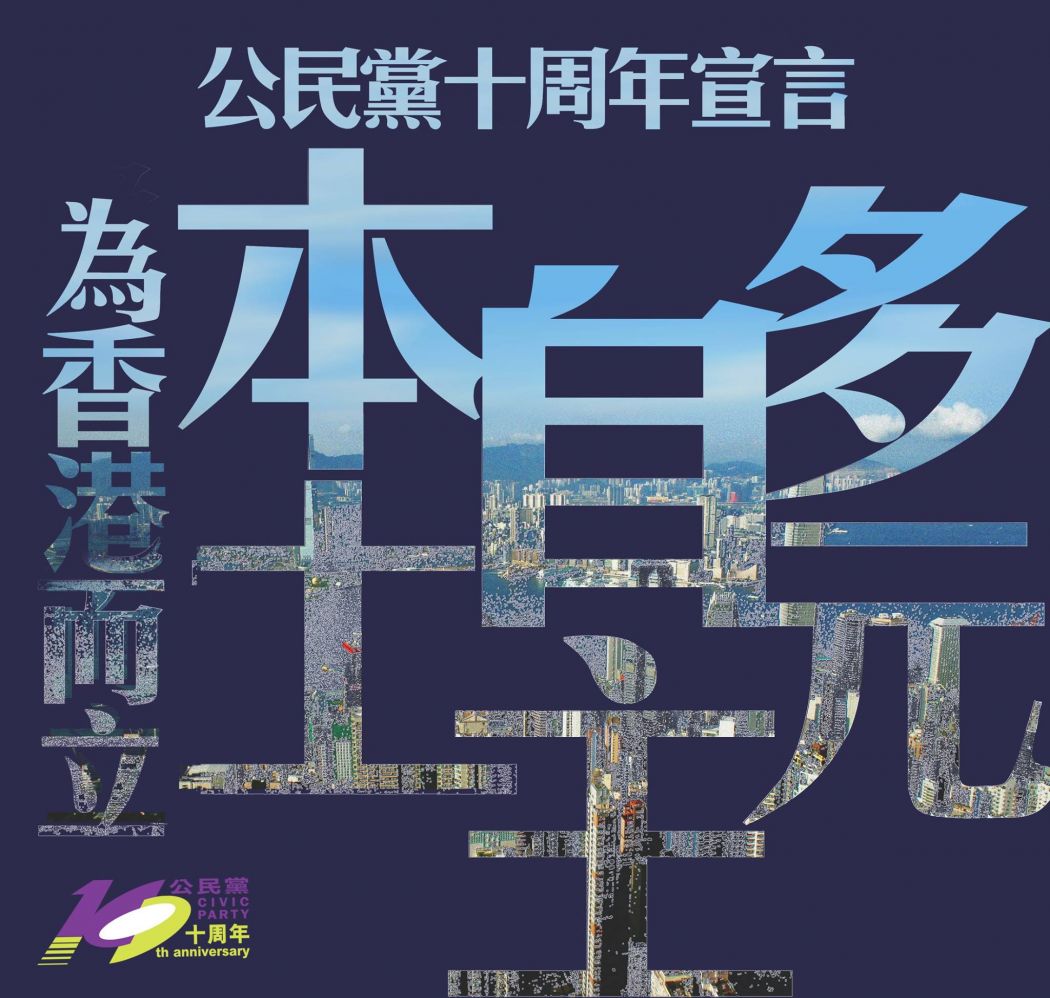The pro-democracy Civic Party has published a new manifesto entitled “Founded for Hong Kong: Local, autonomous, and pluralistic”, as it celebrates its tenth anniversary. However, the usage of the word “local” in its Chinese version has drawn criticism from localists.
The party, founded in 2006, said in the manifesto that it has been their belief that the notion of “Hong Kong people ruling Hong Kong” would eventually come true.
“Nineteen years after the hand-over the Central Government’s policies have increasingly prioritized One Country and slighted Two Systems, with lasting consequences,” it read. “They have resulted in the growing tendency and sentiment among the Hong Kong people to defend their local cultures and institutions.”

“While the essence of our local cultures and institutions is thinning down, we have all the more reasons to stand up for the Hong Kong spirit which The Civic Party valued so highly when we first came together to articulate our collective will and project to fight for Hong Kong’s democracy.”
The party wrote that the it will “stand by the people and make sure that they will be present in the critical process that decides what Hong Kong will be after 2047,” mentioning that Hong Kong people could not take part in the process that determined the arrangements of 1997 during the 1980’s and 1990’s.
Full control of visas
The manifesto also stated that the party “shall continue to make Hong Kong our home-city grounded on its open, dynamic, and pluralistic way of life.”
“Any new inhabitant who becomes a resident through the legal means, who shares our core values, accepts our culture, becomes an integral part of the society we build together, and is ready to contribute to its general well-being, would be received as a fellow Hong Konger.”
“With this perspective, we must ensure that Hong Kong is autonomous in making its own immigration and population policies. Specifically, we must formulate our own policies in granting the one-way entry permits for mainland immigrants, and take full control over the issuing of visas for visitors.”

Apparent localism
In the manifesto’s Chinese version, it used the word bun tou (本土) which is commonly translated as localism – though the English version did not directly use the word.
While localist groups support democracy, they are usually more radical than traditional pan-democratic groups in promoting the expansion of Hong Kong’s autonomy and independence.
The new manifesto has drawn criticism from localists, saying that the Civic Party has to face its past as a pan-democratic party, before its apparent turn to localism.
“To say you are localists, please first apologise to those who joined anti-parallel trading protests. A real localist would not break off from Hong Kong people who defend local interests,” an internet user commented on the party’s Facebook account.
Another questioned why the Civic Party’s turn came so late late: “A so-called party formed by professionals, only mentioning localism now after ten years, can you just move away and let the new generation of young people take over [?]”
Some also doubted the party’s stance as its lawmaker Alan Leong Ka-kit said in January last year that he was against the idea of Hong Kong independence.
The party currently has six lawmakers and ten district councillors, with Alvin Yeung Ngok-kiu winning a Legislative Council seat in a by-election last month, filling the seat left by former member and lawmaker Ronny Tong Ka-wah who resigned from both positions.
